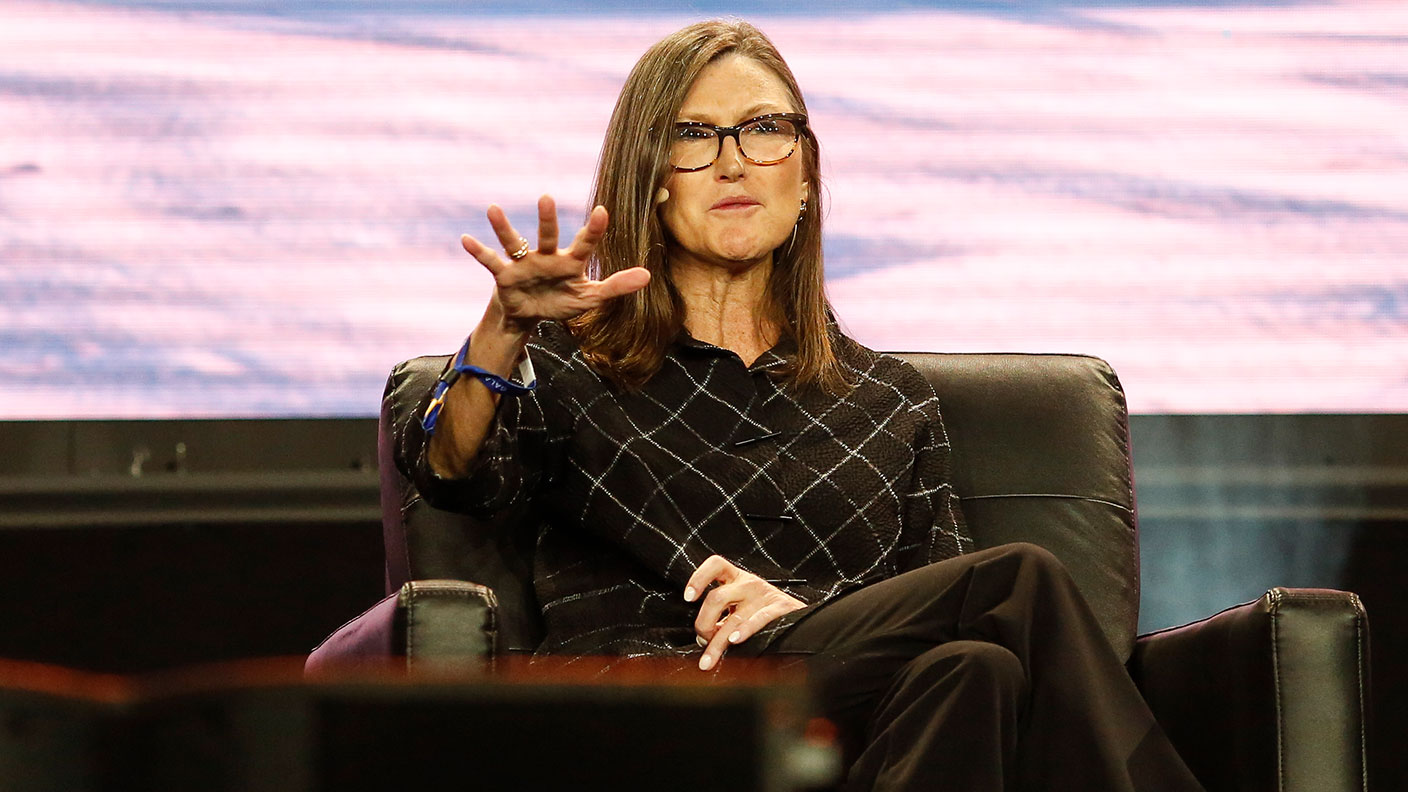Get the latest financial news, insights and expert analysis from our award-winning MoneyWeek team, to help you understand what really matters when it comes to your finances.
You are now subscribed
Your newsletter sign-up was successful
Want to add more newsletters?

Twice daily
MoneyWeek
Get the latest financial news, insights and expert analysis from our award-winning MoneyWeek team, to help you understand what really matters when it comes to your finances.

Four times a week
Look After My Bills
Sign up to our free money-saving newsletter, filled with the latest news and expert advice to help you find the best tips and deals for managing your bills. Start saving today!

John is out at the MoneyWeek Wealth Summit this morning, so today we have a guest essay from value fund manager and regular MoneyWeek contributor, Tim Price.
Are all asset classes expensive?
It's a complaint you hear often in today's low-yield world.
MoneyWeek
Subscribe to MoneyWeek today and get your first six magazine issues absolutely FREE

Sign up to Money Morning
Don't miss the latest investment and personal finances news, market analysis, plus money-saving tips with our free twice-daily newsletter
Don't miss the latest investment and personal finances news, market analysis, plus money-saving tips with our free twice-daily newsletter
But it depends on where you look.
There's always opportunity lurking somewhere
Most institutional fund managers are constrained on multiple fronts.
They track some form of index or benchmark; that index or benchmark will almost invariably be market-relative (as opposed to absolute) in nature; they will have either very limited or no real discretion to limit the size of their funds.
Take Vietnam, one of our favourite markets. It's a favourite primarily on valuation grounds: its companies, while in many cases highly profitable and growing quickly, trade on a huge discount to those throughout the rest of the world.
It's also a favourite because of economic fundamentals. Vietnamese wage rates, for example, are roughly a third of those in China.
But Vietnam is also a favourite because of a technical wrinkle. By dint of being defined as a "frontier" economy (one step below that of an "emerging market"), Vietnam does not sit within the MSCI World Index it's not yet a developed economy.
But it doesn't sit within the MSCI Emerging Market Index either it's not yet deemed mature enough.
What this means is that if you're an institutional fund manager tracking either MSCI World or MSCI Emerging, you don't get to play in Vietnam. You're not allowed. You can't.
Well, we can because we're not constrained by a box marked MSCI or anything else. Hint: it will probably make more sense as a private investor to own Vietnam before the Big Boys are allowed in.
We have long stated that the only benchmark that should matter to any investor (private or otherwise) is an absolute return one.
That is to say, we believe more strongly in sustained capital preservation in real terms, than in more speculative capital growth that exposes client portfolios to huge swings in net asset value up and down.
Big is not beautiful when it comes to investing in funds
But perhaps the biggest impediment to investment performance is size. As Warren Buffett himself has acknowledged on numerous occasions, "size is the anchor of performance".
Asset management practitioners would provide a superior service to their clients if they limited inflows and concentrated on delivering investment returns. Sadly, the "institutional imperative" makes onerous demands on institutional players. In other words, it forces them to get greedy.
Given that the largest asset managers now control trillions of dollars by way of assets under management, investors in their funds might want to answer the following question using words of one syllable: can a market beat itself?
Before buying any fund, ask yourself some additional questions:
How big is it? The tree cannot grow to the sky. But try telling that to Neil Woodford, or to the average member of the Investment Association. Managers' pay is invariably linked to the size of funds under management. The more assets, the more pay.
It takes guts, and principles, to turn money away and concentrate solely on investment performance. But that's precisely what many smaller investment boutiques do on a regular basis.
Has the manager invested his own money? If he hasn't, why should you? Meaningful personal investment is by itself no guarantee of investment outperformance, but it shows the most basic alignment of interests between manager and investor.
Is it independent, and owner-managed? David Swensen, manager of Yale University's endowment fund, has gone on record saying he prefers the smaller, private partnership over the larger, listed full-service operator. How many mouths must your fees feed?
Is it an asset manager, or an asset gatherer? This gets to the heart of the challenge facing investors today. The investment world is polarised between asset managers, who focus their energies on delivering the best possible returns for their clients; and asset gatherers, who just want to maximise the number of clients. Most fund management firms fall into the latter category. Favour the former.
How to distinguish between the asset managers and the asset gatherers? Try to find managers like the celebrated investor Jean-Marie Eveillard, who once remarked: "I would rather lose half of my shareholders than half of my shareholders' money".
We conclude with three observations.
1. Homo economicus doesn't exist outside the economics textbooks. Private investors, together with their professional advisers and managers, may often be guilty of confusing "needs" with "wants".
When they say they "want" a certain annualised return, they might more accurately "need" the absolute preservation of their purchasing power over time and, ideally, some form of incremental positive return on top.
2. That size is the enemy of performance is the fund management industry's dirty little secret that hides in plain sight.
3. Index-relative investing is for the birds, despite the fact that almost the entire asset management industry pursues it. The essential truth of this statement will become almost tangible during the next market correction.
The truth is that there is no shortage of attractive investment opportunities in an unconstrained global marketplace. You just have to be looking for them. And most asset managers, as a direct and inevitable result of the hope, need and greed that drives their institutional imperatives, simply are not.
Tim Price is co-manager of the VT Price Value Portfolio and author of Investing Through the Looking Glass: A Rational Guide to Irrational Financial Markets.
Get the latest financial news, insights and expert analysis from our award-winning MoneyWeek team, to help you understand what really matters when it comes to your finances.
-
 Should you buy an active ETF?
Should you buy an active ETF?ETFs are often mischaracterised as passive products, but they can be a convenient way to add active management to your portfolio
-
 Power up your pension before 5 April – easy ways to save before the tax year end
Power up your pension before 5 April – easy ways to save before the tax year endWith the end of the tax year looming, pension savers currently have a window to review and maximise what’s going into their retirement funds – we look at how
-
 Are UK house prices set to fall? It’s not so simple
Are UK house prices set to fall? It’s not so simpleAnalysis Figures suggest UK house prices are starting to slide, but we shouldn’t take these numbers at face value, explains Rupert Hargreaves.
-
 Tesco looks well-placed to ride out the cost of living crisis – investors take note
Tesco looks well-placed to ride out the cost of living crisis – investors take noteAnalysis Surging inflation is bad news for retailers. But supermarket giant Tesco looks better placed to cope than most, says Rupert Hargreaves.
-
 It may not look like it, but the UK housing market is cooling off
It may not look like it, but the UK housing market is cooling offAnalysis Recent house price statistics show UK house prices rising. But John Stepek explains why the market is in fact slowing down and what this means for you.
-
 Think the oil price is high now? You ain’t seen nothing yet
Think the oil price is high now? You ain’t seen nothing yetAnalysis The oil price has been on a tear in recent months. Dominic Frisby explains why oil in fact is still very cheap relative to other assets.
-
 What can markets tell us about the economy and geopolitics?
What can markets tell us about the economy and geopolitics?Sponsored Markets have remained resilient despite Russia's war with Ukraine. Max King rounds up how reliable the stockmarket is in predicting economic outlooks.
-
 The tech bubble has burst – but I still want a Peloton
The tech bubble has burst – but I still want a PelotonAnalysis Peloton was one of the big winners from the Covid tech boom. But it's fallen over 90% as the tech stock bubble bursts and and everything else falls in tandem. Here, Dominic Frisby explains where to hide as markets crash.
-
 The market is adjusting to a new “short dreams, long reality” world
The market is adjusting to a new “short dreams, long reality” worldAnalysis As interest rates rise, things are starting to change, says John Stepek. Reality is biting back. Gone are the fanciful ideas built on hope – a business now needs a solid foundation.
-
 Are UK house prices heading for a fall?
Are UK house prices heading for a fall?Analysis UK house-price growth is slowing as interest rates rise. But interest rates aren’t all that matters for house prices, says John Stepek.